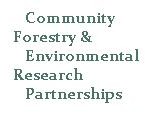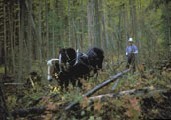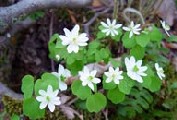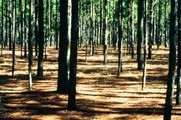|
Other Funding Opportunities
AAAS Roger Revelle Fellowship in Global Stewardship Program
Applications are invited from candidates in any physical, biological, or social science, any field of engineering, or any relevant interdisciplinary field. All applicants must have a PhD or an equivalent doctoral-level degree and at least three years of post-degree professional experience by the application deadline.
American Association for the Advancement of Science-Environmental Fellowship
Prospective Fellows must have a PhD or an equivalent doctoral-level degree by the application deadline and must show exceptional competence in some area of science or engineering related to the environment; have an excellent scientific or technical background; and have a strong interest and some experience in applying scientific or other professional knowledge toward the identification and assessment of future environmental problems.
American Council of Independent Laboratories Scholarship
The ACIL Scholarship Alliance, a division of the Independent Laboratories Institute, helps to ensure future generations of skilled employees for the laboratory testing community. This award is for students in their Junior year or above including postgraduate levels in one of the following fields: Biology, chemistry, engineering, environmental science, geology, physics.
American Planning Association Graduate Fellowship
Applicants must be a U.S. or Canadian citizen, demonstrate financial need, be enrolled in a graduate planning program that is accredited by the Planning Accredited Board. Scholarships are for African-Americans, Hispanics, or Native American students.
American Indian Science and Engineering Society: Various Scholarships
Applicants must have 2.7 or higher cumulative GPA based on a 4.0 system. and be a full time student majoring in environmental studies, science or engineering fields leading to an environmentally-related career. Applicants must be a U.S. citizen or permanent resident that is a current member of AISES. The qualifying criteria will be weighed in a scoring process with significant weight being placed on the essay question demonstrating the applicant's knowledge and lived experiences with American Indian tribal cultures and potential for career work and contributions to American Indian tribes. Non-Indians may apply.
The American-Scandinavian Foundation (ASF) Fellowships and Grants
The American-Scandinavian Foundation (ASF) offers fellowships and grants to individuals to pursue research or study in one or more Scandinavian countries for up to one year. Awards are made in all fields. Grants are considered especially suitable for post-graduate scholars, professionals, and candidates in the arts to carry out research or study visits of one to three months duration. Priority is given to candidates at the graduate level for dissertation-related study or research.
American Water Resources Association- Richard A. Herbert Memorial Scholarships
One $2,000 scholarship will be awarded to a full-time undergraduate student working toward their first undergraduate degree and is enrolled in a program related to water resources for the upcoming academic year. The second $2,000 scholarship will be awarded to a full-time graduate student enrolled in a program related to water resources for the upcoming academic year.
American Wildlife Research Foundation: Grant Program
Open to researchers in the fields of natural resources, ecology and evolutionary biology, animal science, geological sciences, plant biology, soil, crop, and atmospheric sciences, and related fields.
Annie's Homegrown Environmental Studies Scholarship
Open to any student beginning or returning to an accredited 2- or 4-year technical or college program focusing on classes in the environmental studies field. Graduate students are also welcome to apply.
Gloria Barron Wilderness Society Scholarship
Applicants must be graduate students in natural resources management, law or policy programs.
John G. Bene Fellowship in Community Forestry Program
This Fellowship provides assistance to Canadian graduate students undertaking research on the relationship of forest resources to the social, economic, cultural and environmental welfare of people in developing countries.
Budweiser Conservation Scholarship Program
Applicants must be US citizens currently enrolled in an accredited institution of higher education in the United States pursuing a graduate or undergraduate degree (sophomores and juniors in the current academic year only) in environmental science, natural resource management, biology, public policy, geography, political science or related disciplines. Recipients are eligible for one year of scholarship support.
Canon National Parks Science Scholars Programs for the Americas
Open to all students currently enrolled in a US university, working toward their Ph.D., and preparing to conduct at least some of their dissertation research in the national park system of their country of citizenship. Applicants should be in one of the following fields of study: Biological Sciences (botany, ecology, etc.), Physical Sciences (geology, atmospheric sciences), Social Sciences (economics, sociology)m Cultural Sciences (ethnography, archeology) or technology innovation in support of conservation science.
Career Development Grants
American Association of University Women- Career Development Grants support women currently holding a bachelor's degree who are preparing for career advancement, career change, or to re-enter the work force. Special consideration is given to AAUW members, women of color, women pursuing their first advanced degree or credentials in nontraditional fields. Funds are available for tuition, fees, books, supplies, local transportation, and dependent care. Applicants must be U.S. citizens or permanent residents whose last degree was received before June 30, 1996. Funds are not available for doctoral level work.
Community Associations Institute Research Foundation-Byron Hanke Fellowship
Hanke Fellowship applicants must be enrolled in an accredited master's, doctoral, or law program. Students of all disciplines are welcome to apply for the Hanke Fellowships, provided their studies relate to community associations generally and to the topic of the candidate's proposed community associations research project. Past fellows have come from a wide range of academic disciplines, including law, economics, sociology and urban planning.
DAAD – Leibniz – Scholarships Program for Doctoral Candidates and Post-docs
These scholarships provide young academics and scientists with an opportunity to complete a research project or a program of continuing education and training at one of the Leibniz Institutes in Germany. Research fields are specified by the Institutes. The "DAAD-Leibniz Scholarship" accepts applications from graduate students, PhD candidates and Post-docs.
John Z. Duling Grant Program
Another scholarship administered through the Tree Research and Education Endowment Fund (TREE), the goal of the John Z. Duling Grant Program is to provide seed money to support research projects that address topics that have the potential of benefiting the everyday work of arborists.
Dr. W Wes Eckenfelder Jr.-Brown and Caldwell Scholarship
For graduate and undergraduate students in civil chemical or environmental engineering, geology, hydrogeology, biology, ecology, public health or industrial hygiene toxicology
The Environmental Leadership Program (ELP)
The ELP Fellowship targets newly established environmental practitioners eager to connect their specialized work to larger environmental and social concerns. Applicants should be relatively new to the environmental field with approximately three to ten years of professional experience or post-undergraduate academic studies.
EPA Minority Academic Institutions (MAI) Fellowship Program for Graduate Environmental Study
For Master's and Doctorate level students in environmentally related fields of study. Applicants must be U.S. citizens or U.S. permanent residence either attending or planning to attend a fully accredited four-year U.S. Minority Academic Institution.
EPA National Network for Environmental Management Studies Undergraduate/Graduate Fellowship Programs
Applicants must be US citizens or permanent residents between their college sophomore year to Master’s Post Grad Program with a minimum GPA of 3.0 studying one of the following fields: Environmental Science, Environmental Management, Chemical Engineering, Environmental Engineering, Environmental Chemistry, Environmental Biology, Environmental Health, Public Relations and Communications or Computer Programming and Development.
Environmental Research Education Foundation: Francois Fiessinger Scholarship Fund
This scholarship is open to students who are currently or will be full-time Ph.D. students. Selection is based on academic and/or professional performance, relevance of one's work to advancing environmental science, potential for success, and recommendations.
Fulbright Fellowship-Institute of International Education
The U.S. Student Program is designed to give recent B.S./B.A. graduates, master’s and doctoral candidates, young professionals and artists opportunities for personal development and international experience. The U.S. Student Program awards approximately 1,000 grants annually and currently operates in over 140 countries worldwide.
John Gyles Education Awards
Applicants for this scholarship must either have Canadian or American citizenship who can demonstrate financial needs. Scholars must be full-time students with a minimum
Hyland R. Johns Grant Program
Established by the International Society of Arboriculture Research Trust and currently provided by the Tree Research and Education Endowment (TREE) Fund, this grant program aims to fund projects that benefit the arboricultural industry and enhance the many contributions of our urban forests. Applicants must submit proposals.
Josephine De Kármán Fellowship Trust
Applicants must have exceptional ability and serious purpose in their chosen discipline. Special consideration will be given to applications in the humanities.
NASA Earth System Science Fellowship Program
NASA offers graduate student training fellowships for persons pursuing a Master of Science (M.Sc.) or Doctoral (Ph.D.) degree in Earth system science. Research will also be considered in atmospheric chemistry and physics, ocean biology and physics, ecosystem dynamics, hydrology, cryospheric processes, geology, geophysics, and information science and engineering, provided that it is relevant to NASA's program in support of the U.S. Global Change Research Program (USGCRP).
National Association of Water Companies J.J. Barr Scholarship
Applicants must be US citizens in a graduate degree program studying biology, engineering, chemistry, or business administration. Applicants must be attending a school which is located in a state that is included in the geographical boundaries of NAWC Chapters, which currently include: Washington, California, Pennsylvania, New York, New Jersey, New England (including Massachusetts, Maine, Connecticut, Rode Island, Vermont, and New Hampshire), Carolinas (North and South Carolina), Florida, Illinois, Missouri, Delaware, Indiana, and Ohio.
National Council of State Garden Clubs Inc Scholarship
US citizens who are college sophomores to Post Doctorate students with a minimum GPA of 3.0 studying horticulture, floriculture, landscape architecture/design, urban planning/management, botany, biology, plant sciences, forestry, agronomy, environmental sciences/management or land & water development are eligible for this scholarship which is judged on the state level
National Forest Foundation - Community Assistance Program (CAP)
The NFF Community Assistance Program (CAP) will provide “start-up” grants to newly-forming and recently-formed community groups nationwide to organize and engage more effectively in natural resource management issues on and around national forests and grasslands.
National Science Foundation's Division of Social and Economic Sciences - Doctoral Dissertation Research Improvement Grants
The National Science Foundation's Division of Social and Economic Sciences and Division of Behavioral and Cognitive Sciences award grants to doctoral students to improve the quality of dissertation research. These grants provide funds for items not normally available through the student's university. Additionally, these grants allow doctoral students to undertake significant data-gathering projects and to conduct field research in settings away from their campus that would not otherwise be possible. Proposals are judged on the basis of their scientific merit, including the theoretical importance of the research question and the appropriateness of the proposed data and methodology to be used in addressing the question.
Packard Graduate Scholars Program
To qualify for an award, a student must be a U. S. citizen and must graduate from an the Historically Black Colleges and Universities (HBCU) with an overall grade point average of 3.0 or better and a grade point average in his or her major subject of 3.5 or better in one of the following fields: Natural Science Mathematics, Computer Science or Engineering. Each nominee must also have applied for admission to graduate school, must take the Graduate Record Examination (GRE), and must provide the score from that exam to the Foundation as soon as it becomes available. To be considered for this program, a student must be nominated by an HBCU.
Packard Tribal Scholars Program
The Tribal Scholars Program supports graduates of tribal colleges who are admitted to four-year colleges and universities for study in science, engineering, computer science, or mathematics. Qualified nominees are solicited annually from tribal colleges. An advisory panel assists Foundation staff members in setting guidelines and evaluating candidates.
Postdoctoral Fellows Program of the Earth Institute at ColumbiaUniversity
The Program seeks candidates interested in enhancing their disciplinary research in one of the core disciplines of the Earth Institute, while at the same time acquiring the cross-disciplinary expertise and breadth needed to addresses critical issues related to sustainable development and reducing environmental degradation, poverty, hunger, and disease. The Earth Institute's core disciplines span the earth, biological, engineering, social, and health sciences.
Resources for the Future- Joseph L. Fisher Doctoral Dissertation Fellowship
Graduate students in the final year of their dissertation research studying one of the following fields: Economics, environmental & natural sciences, environmental policy or related fields. Fellowship candidates must have completed the preliminary examinations for the doctorate not later than February 1. Resources for the Future particularly encourages women and members of minority groups to apply.
Morris K. Udall Foundation: Ph.D Dissertation Fellowship
Annual award to cover both academic and living expenses for Ph.D. candidates writing dissertations in environmental public policy and/or conflict resolution. Candidates must be US citizens or permanent residents, or from American Samoa or the Commonwealth of the Mariana Islands (US nationals); applicants must have completed all coursework, passed all preliminary exams, and had the dissertation research proposal or plan approved by January 15.
The Rob & Bessie Welder Wildlife Foundation- Fellowships for Graduate Students in Wildlife Ecology & Related Areas
Applicants' research interests must relate to wildlife management & conservation or a closely related area. To be eligible for financial support, a student must have a minimum GRE score of 1100 and 3.0 GPA in the last two years of undergraduate or graduate work. M.S. or Ph.D. candidates conducting research in wildlife in one of the following fields of study: Biological, Environmental Sciences: animal behavior, biology, botany, conservation education, ecology, mammalogy, ornithology, parasitology, range science, veterinary pathology, or wildlife and fisheries sciences.
|







